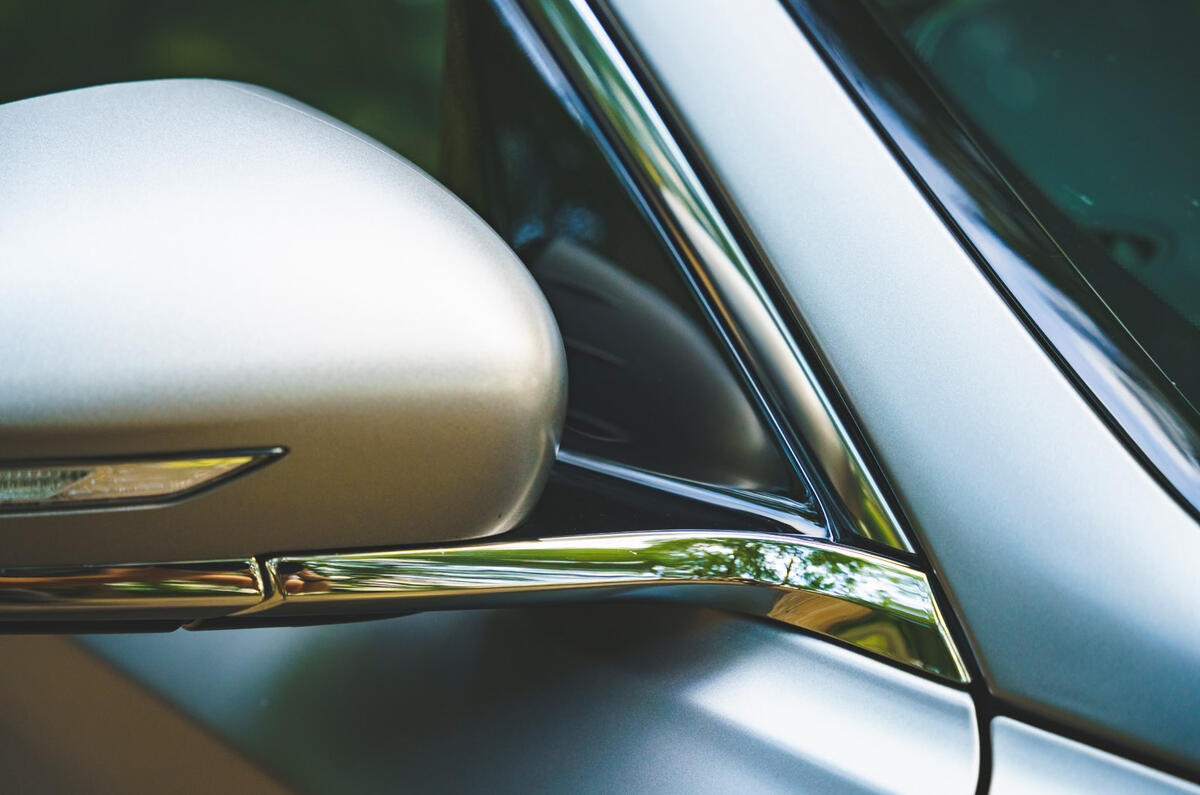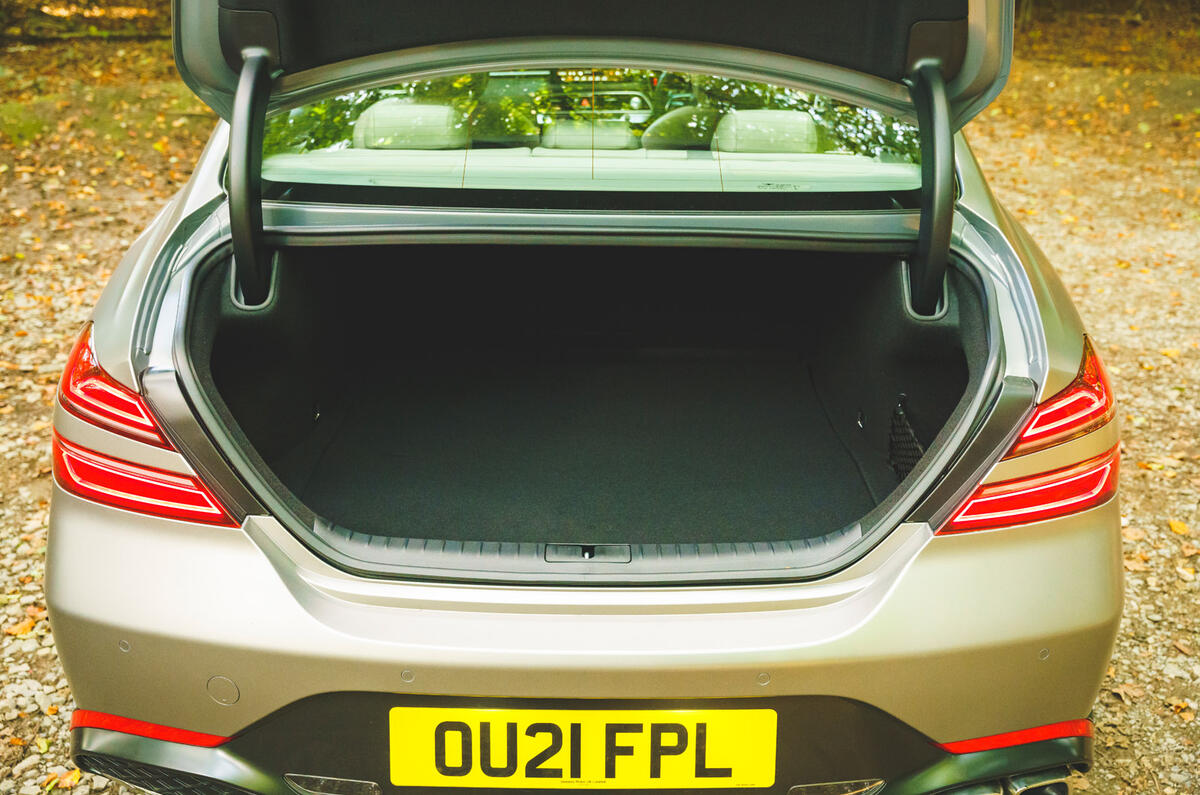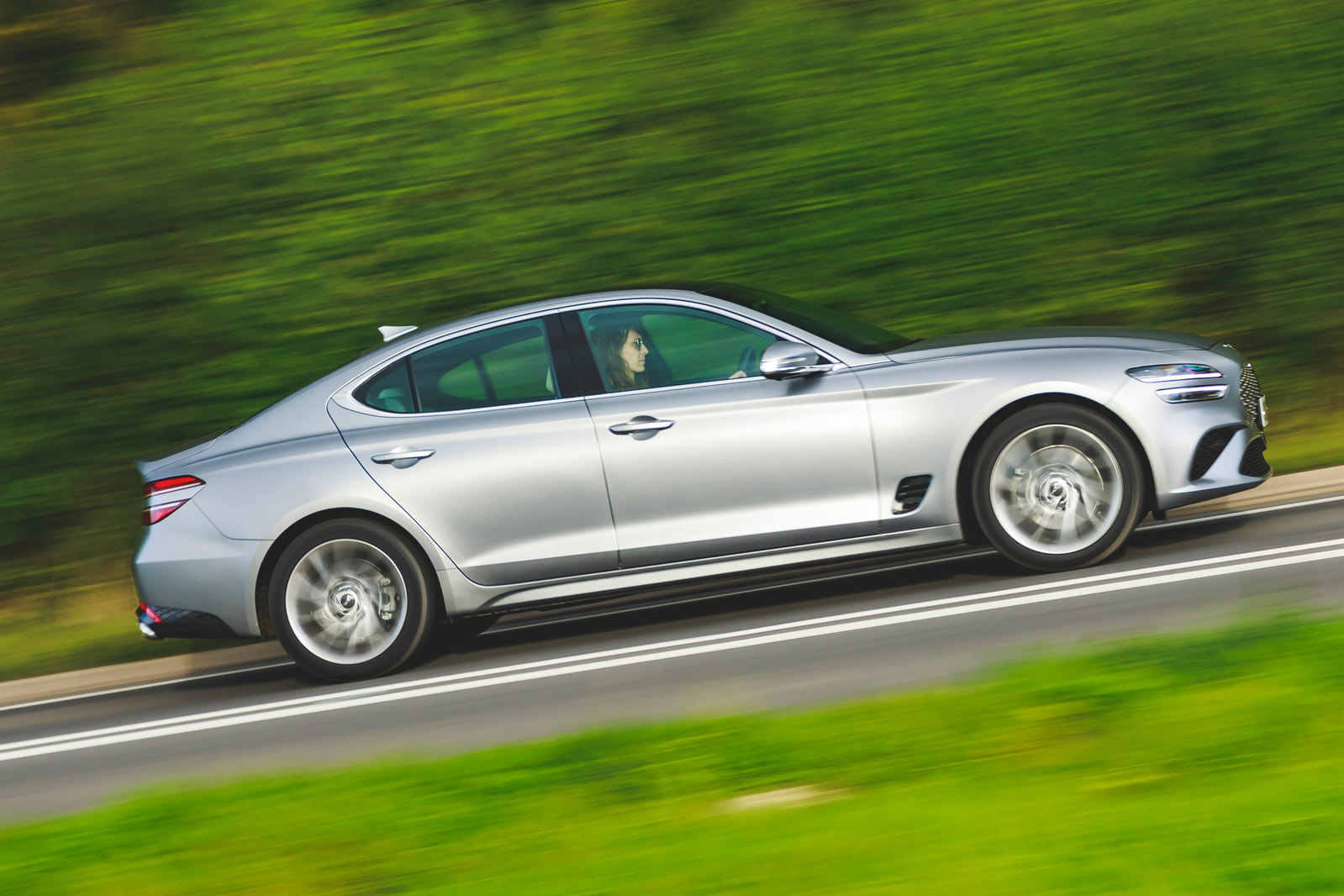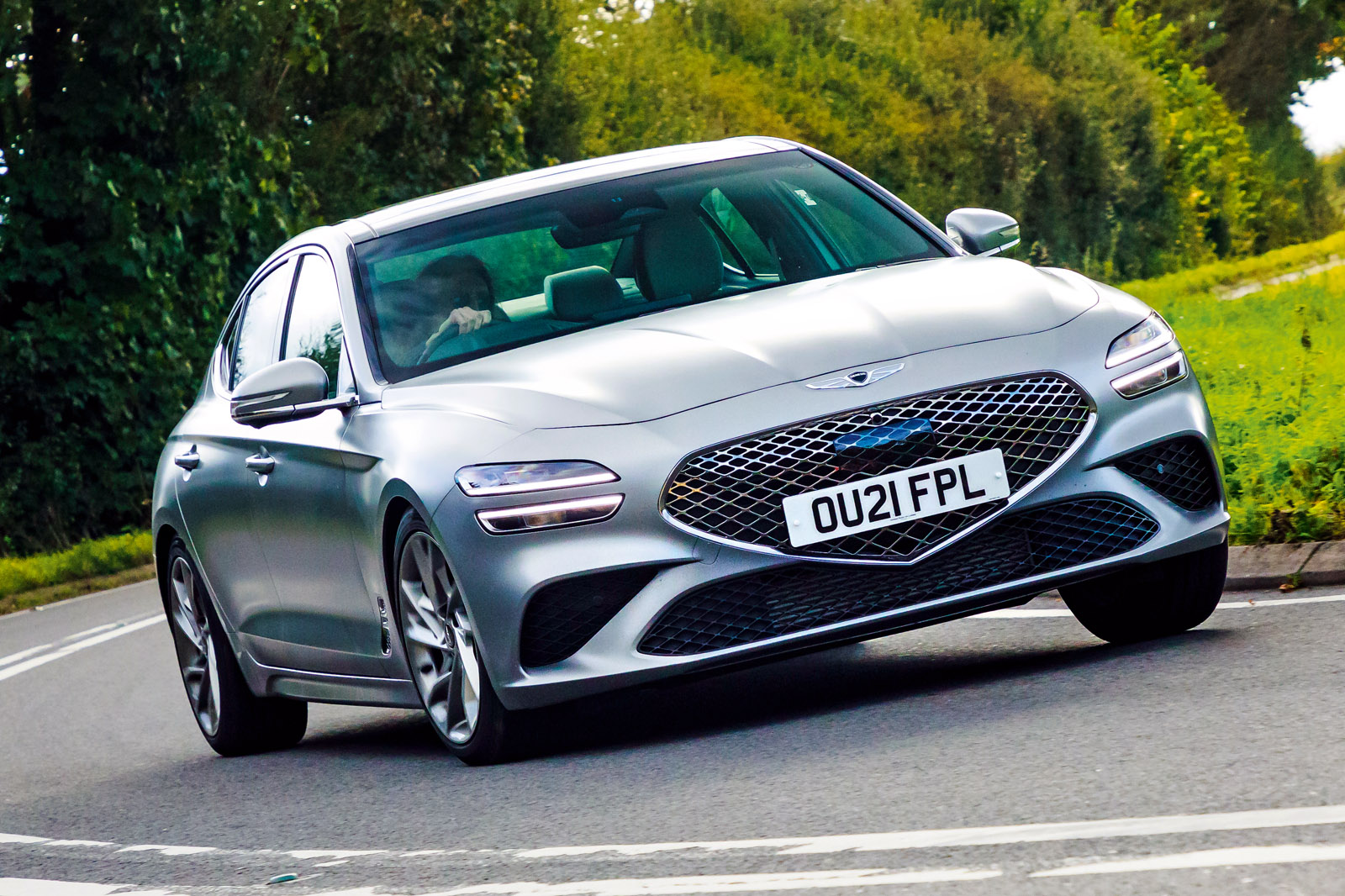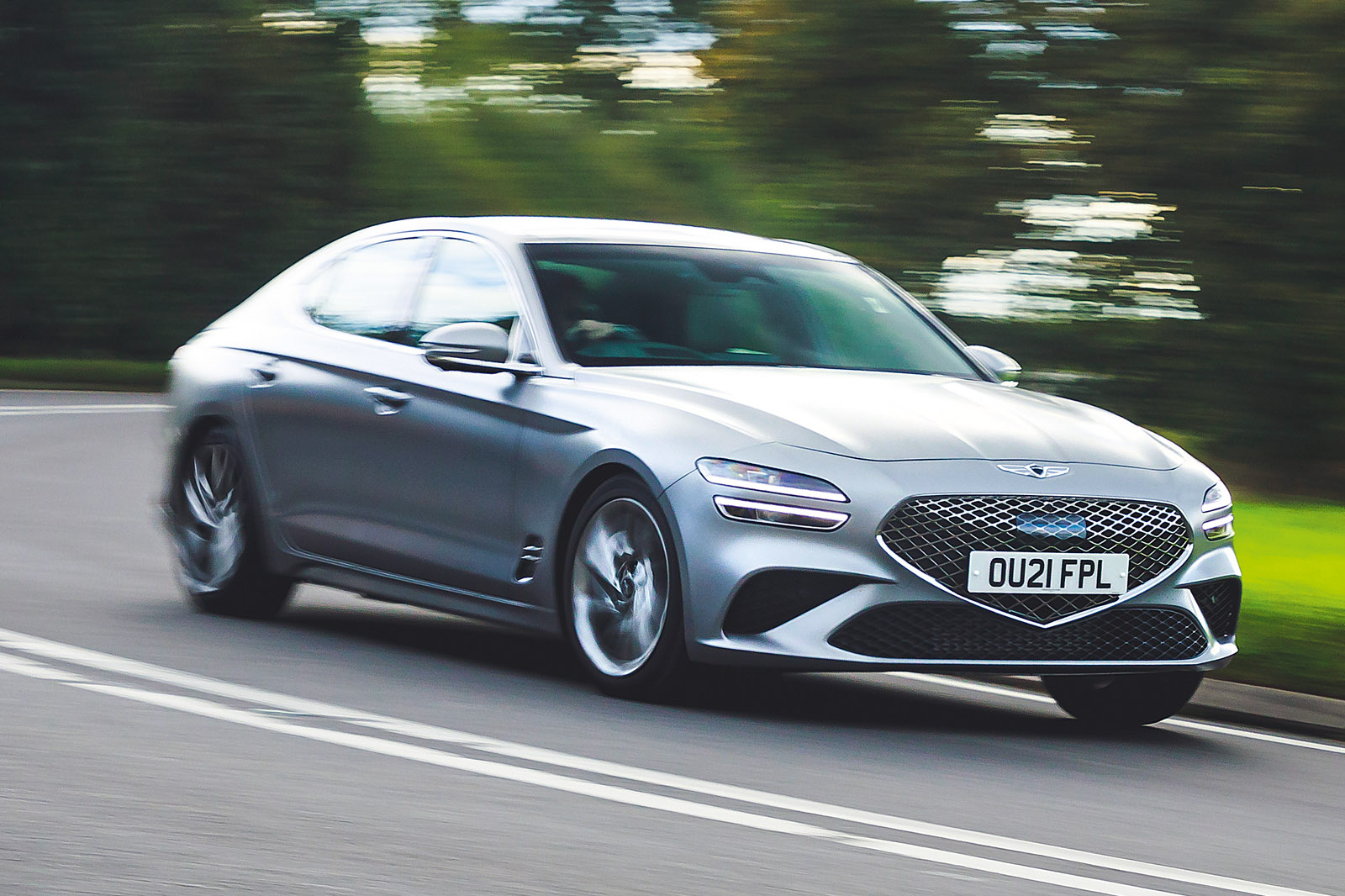Nowhere is it more apparent that the ‘new’ G70 is actually a facelift of a four-year-old design than the interior. Where the brand-new 80 series and the G70’s SUV cousin, the Genesis GV70, have a very distinct and original style of their own, the G70’s interior is slightly reminiscent of an Audi from about 10 years ago.
That’s not necessarily a bad thing, of course: the materials are generally beyond reproach, while all upper surfaces are covered in leather, synthetic leather, aluminium or at least plastic that does a passable impression of metal. If there is anything to complain about, it’s that the non-nappa leather is a little coarse, and some might miss the option of wood trim.
A big benefit of looking slightly less modern is that the centre console is populated by rows of chunky buttons for infotainment shortcuts, the climate controls and the heated and cooled seats and heated steering wheel, so they’re easy to prod on the move. Apart from the infotainment, those don’t come as standard on the entry-level Premium Line, though, so expect an old-fashioned row of blank switches in the cheapest G70s.
As is the norm in a premium saloon, the materials in the back mirror those in the front. Also typical are the leg and head room, which are pretty tight in absolute terms. Six-footers will be brushing the headliner and, despite the cutouts, will have their knees against the seat in front. But that’s normal for the class and very similar to a BMW 3 Series or Audi A4.
The boot offers marginally more surface area than German rivals, but there’s not as much height, so the total volume measures only 330 litres. The estate will obviously remedy that but, at 465 litres, it’s still on the small side. To make matters worse, the boot opening is quite narrow in both versions. The rear seats do fold flat as standard, with almost no step and a fairly even opening, but the seatbacks can only be released from the cabin using some flimsy-feeling handles.
One feature we particularly liked was the hands-free boot opening function. There is, of course, a button to electrically open the bootlid, but instead of a system where you wave your foot under the bumper, the G70 detects if you are approaching with the key and after a few beeps and flashes of the lights will open the boot. We found it worked very reliably.
Infotainment and sat-nav
When we drove the Genesis GV80, we thought the multimedia system was a model of usability, aping the BMW strategy of combining a touchscreen with a rotary controller and plenty of shortcut buttons. The G70 has largely the same system but loses half a star because it is touchscreen only and because it can be a little laggy.
Other than that, it looks slick, the screen is big and everything works logically enough. The built-in navigation is worth using, with directions showing in the head-up display as well, but there is also Android Auto and wireless Apple CarPlay, which are well integrated. You get three programmable buttons, too, but sadly none of them can be programmed to turn off the intrusive lane keeping assistance.
Our car had the £790 Lexicon audio system with its classy metal speaker grilles. However, we’d probably save that money as it sounds a little thin for a pricey premium sound system.








